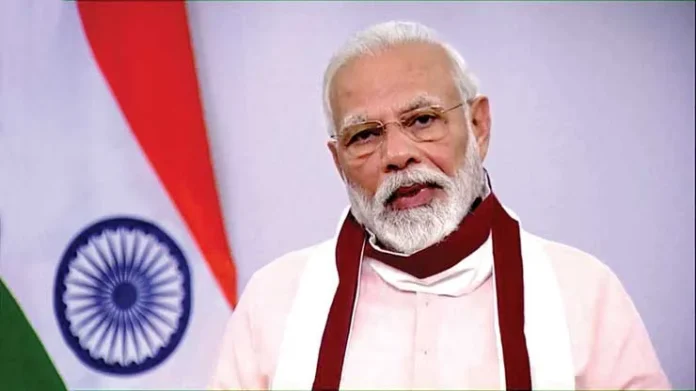Since 2014, Prime Minister Narendra Modi has redefined India’s foreign policy with clarity, courage, and conviction. Gone are the days when India was a silent observer in global affairs. Today, under Modi’s leadership, India speaks with authority, acts with vision, and connects with both the powers and the people across the world.
As PM Modi embarks on a landmark five-nation tour across South America, the Caribbean, and Africa, one thing becomes clear — India’s foreign policy is no longer limited to traditional allies. It is global, inclusive, and assertively strategic.
From Inward-Looking to Globally Engaged
Before 2014, Indian foreign policy largely revolved around maintaining regional balance and reacting to global developments. Modi transformed this passive approach into an active global engagement model. His foreign policy is anchored in five pillars: strategic autonomy, economic diplomacy, cultural connect, diaspora engagement, and global leadership.
Modi has visited over 70 countries, held bilateral talks with the most powerful leaders, and personally championed India’s interests on platforms such as the G20, BRICS, Quad, SCO, and UN. His personal diplomacy — firm handshakes, first-name basis friendships, and cultural symbolism — has given India a new brand of confidence on the world stage.
PM Modi has visited over 70 countries, held bilateral talks with the most powerful leaders, and personally championed India’s interests in G20, BRICS, Quad, SCO, and UN. His firm handshakes, first-name basis friendships, and cultural symbolism have given India a new brand of confidence on the world stage
The Africa and Latin America Focus: Modi’s Distinct Approach
Historically, Indian foreign policy gave little attention to Africa, the Caribbean, and South America — regions rich in potential, resources, and strategic value. PM Modi, however, has broken that pattern.
Why Africa Matters to Modi
- First Indian PM to visit over a dozen African nations in less than a decade.
- Hosted 54 African nations during the India-Africa Forum Summit in 2015.
- Focus on energy cooperation, security partnership, capacity building, education, and health.
- Countering China’s deep influence by offering transparent, people-first development partnerships.
Prime Minister Modi’s five-nation tour is not just diplomatic symbolism — it’s about building alliances beyond the West, creating economic and political leverage, and projecting India as a true leader of the Global South
South America & Caribbean Outreach:
- Building trade ties with resource-rich countries like Brazil, Guyana, Suriname, and Trinidad & Tobago.
- Reconnecting with the Indian diaspora in the Caribbean, many of whom trace their roots to India’s freedom struggle.
- Promoting South-South cooperation through technology, fintech, digital health, and climate collaboration.
This five-nation tour is not just diplomatic symbolism — it’s about building alliances beyond the West, creating economic and political leverage, and projecting India as a true leader of the Global South.
Modi’s Diplomatic Wins: Putting India on Top of the Global Table
- Strategic Partnerships: Enhanced ties with the US, France, Japan, Australia, and the UAE.
- Defence Diplomacy: Joint military exercises and defence production deals have made India a credible regional security player.
- Energy Security: Long-term energy and green hydrogen pacts with Africa and the Middle East.
- Tech & Trade: Attracting semiconductor, AI, and digital infrastructure investments from global tech giants.
- Global Leadership: Leading initiatives like the International Solar Alliance, Coalition for Disaster Resilient Infrastructure, and Digital Public Infrastructure.
Modi’s diplomacy has changed India’s global image, from a hesitant power to a decisive, dependable, and dynamic force in global affairs. His focus on overlooked regions such as Africa and Latin America reflects a long-term strategic vision that few Indian leaders have demonstrated
India as the Voice of the Global South
During its G20 Presidency in 2023, India raised the concerns of developing nations on debt, climate justice, digital access, and sustainable growth. Modi ensured that India speaks not just for itself, but for the aspirations of billions in the Global South.
This is a key differentiator of the Modi Doctrine: leadership with empathy, not dominance.
A Confident India on the World Stage
PM Modi’s diplomacy has changed India’s global image — from a hesitant power to a decisive, dependable, and dynamic force in global affairs. His focus on overlooked regions such as Africa and Latin America reflects a long-term strategic vision that few Indian leaders have demonstrated.
Whether it’s building partnerships across continents, expanding India’s global influence, or standing firm in complex geopolitical situations, Narendra Modi has redefined what Indian foreign policy looks like in the 21st century.
And today, as the world looks East, India is no longer just a participant. It is shaping the future.
The writer serves as the BJP Karnataka Spokesperson and Head of the Research Team.






